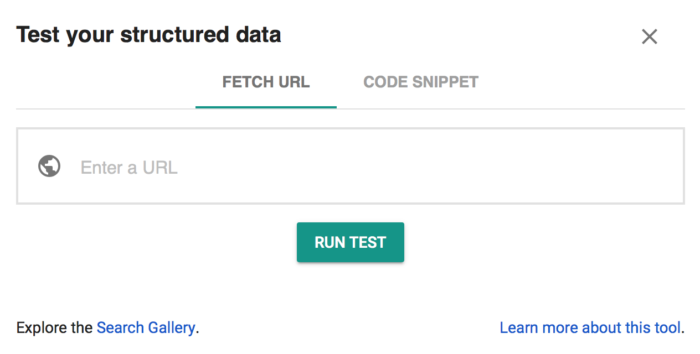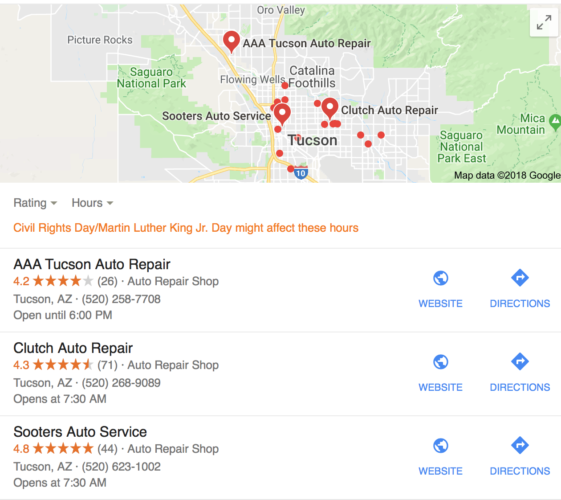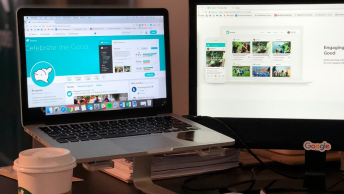SEO aims to increase a business’ visibility to a targeted audience, but local SEO takes targeting even further.
By focusing on customers and prospects in a specific area, local SEO can drive local traffic to websites and physical your locations. Want your brand to be a local rock star? Keep reading to find out how local SEO can make this happen.
Local SEO: How to Make Your Brand a Local Rockstar
Restaurants, retail stores, law firms, car dealerships, and even dental or medical clinics can benefit from utilizing local SEO.
Your first question when trying to get started may be: why is local SEO specifically?
Why Local SEO?
1. The Battle for Real Estate on the SERPs
The results that appear in the top spot of an Organic Search don’t take the top spots in Local Search.
2. All the Benefits of Organic SEO
It follows the same methodology as an organic search, but with a few changes – citation and listings, building, etc.
3. Higher Success Rate and Faster Results
You get a combination of marketing tactics that will impact the foot traffic of your business.
An effective local campaign requires a combination of geo-targeted optimization and content marketing, business listings and backlinks, and user-generated reviews.
SEE ALSO: How to Improve Brand Signals For Better SEO
Managing Business Listing and Social Pages
One aspect of local search is maintaining brand consistency across all online properties, and this includes listing websites. You need to claim, verify, and manage your business listings on:

Google’s Business Guidelines change quite often. It’s, therefore, crucial to making sure the information on the business pages are correct and change as the business changes.
Optimize Websites for Local Audiences
Local SEO uses the same elements as traditional SEO does, but it requires a few specifically targeted elements as well.
Contact Information and Business Hours
This is the information search engines, listings or directories, and customers often look for when they first visit a local business website.
A business’ operating hours and contact information, which includes its physical address and phone number, should be displayed on every page of its website.
Hyper-Local Keywords
Keywords and phrases containing the business’ location should appear in title tags, meta descriptions, and content. Simply targeting a city or state may not be enough to drive local leads.
Going hyper-local by targeting even more specific communities within your city can help get more customers through your doors.
Our SEO teams analyze where local website traffic is coming from and use that data to choose better geo-targeted keywords.
Title and Meta Descriptions
Your title and meta description tags are HTML elements. You can customize these to reflect the unique content of your web page.
It is the text of your title and your description tags that will end up being displayed in your search results, so you can think of this text as a ‘mini-ad’. Just like any other ad, you’ll want to spend a little more time crafting this text.

In just the last year, Google increased the width of the main search results area to 600px. This means that the generally accepted length for your title tags has become 50-60 characters, and your description tags can be 160-200 characters.
Writing your titles and descriptions have become something of an art because if your text isn’t unique, compelling, or descriptive, you will have a smaller click-through rate.
It’s also important to consider that just one extra word or character can cut off your text and leave your reader with a confusing ellipse (…).
This will leave your website looking unprofessional, especially if this happens in the middle of a sentence. It also makes your title and descriptionless impactful.
Remember, you only have one shot to make a person click on your link if you show up in the search results. Don’t waste any of your characters on words that won’t convince a searcher that you are what they’re looking for.
Targeting Local Markets With Content
Content marketing for local campaigns requires the same amount of creativity and quality for any other SEO campaign, but there needs to be a stronger emphasis on calls to action, influence marketing, and topics relevant to the business’ location.
Featuring Local Topics
Your writers should create content based on what’s relevant to your business and your location. Writing about local trends or even area-specific laws that are related to your industry is always a good way to establish your authority as an information resource.
Creating Brand Advocates
Writers don’t just sell or announce products and services; they encourage customer loyalty and create brand advocates.
These customers who love your brand can promote them through word of mouth by sharing content on social media.
Establishing Business Identity
Use schema markup to make sure on your website’s local content is correctly identified by search engines.
- Local Business Information (Phone, Address, Business Name, Opening Hours)
- Map Schema
- Product Information Schemas
- Images and Logo Schemas
Schema markup is just a structured data markup. It can be easily added to your website’s code so that search engines have access to more information about your business.
This information can include the products you sell, the reviews about you, and the services you offer.
Surprisingly, only 31.3% of websites are currently using this kind of markup, and of those most are only using the basics.
Your business will stand out more and potentially rank higher than your competitors if you add schema markup to your site.
Google wants you to use schema markup so bad that they have even created a structured data testing tool. This great option lets you see if you’ve properly implemented your schema markup.

Building Quality Citations
Quality backlinks are an important aspect of any SEO campaign, but citations are even more important for local SEO.
Citations are brand mentions made by customers or other businesses on third-party websites. These brand mentions are key ranking factors in local search.
Some of the most important and effective types of citations:
Social or Blog Content
This type of content encourages brand advocates and local influencers to talk about you on their blogs and social media accounts. It is also a good way to acquire citations.
Business Listings and Reviews
Listings in business directories, local networks, and review sites are in themselves citations. Through managing these listings and getting more customers to post positive reviews of your business, you can add more citations.
Google has been able to determine that four out of five customers use search engines to conduct their local searches.
This is why it is important to make sure that your business is listed correctly and consistently in the top business directories. These usually include Yelp, Merchant Circle, and Citysearch.
When looking for respectable local directories to get your business listed on check out your local newspaper’s website and your Chamber of Commerce to see if they have a business directory.

Additionally, you’ll want to make sure that your business’s name, address, and phone number (NAP) are all the same. You want to appear as consistent as possible.
Small changes like misspellings, abbreviations, or a wrong phone number can cause chaos and make it so that Google won’t be able to determine which information about your business is correct.
This could lead to Google displaying the wrong information, or not showing your business in the search results at all.
Guest Posts and Magazine Publications
Getting other people to write about your business in an online magazine or even publishing your own articles and press releases can increase your exposure and establish your brand as a leading authority in your niche.
Managing Customer Reviews
84 percent of people trust online reviews as much as a personal recommendation, and seven out of 10 customers will leave a review for a business if asked by the business.
Your local listings and social accounts need to have unique content. This will need to go beyond your business description, operating hours, and contact details. The best way to get this type of content is through customer reviews.
Integrating links to your social media pages and business listings in your website, publishing press releases about your new listings, and engaging customers through online content can also get them to share their thoughts.
The best way to encourage positive reviews from your customers is by providing great services and quality products. However, it’s not the only way.
Here are some of the techniques we use:
- Magazine/News Placement
- Blog Post Outreach
- Press Release Creation and Submission
- Video Creation and Submission
Final Thoughts
With mobile becoming an important tool for search users each day, it’s imperative that local businesses adopt a local SEO strategy that will allow them to leverage their business presence to where their customers are.
It’s not a matter of simply increasing traffic to your site. It’s about staying geographically relevant to your audience and not losing out to your local competitors.
Have you tried local SEO before?










